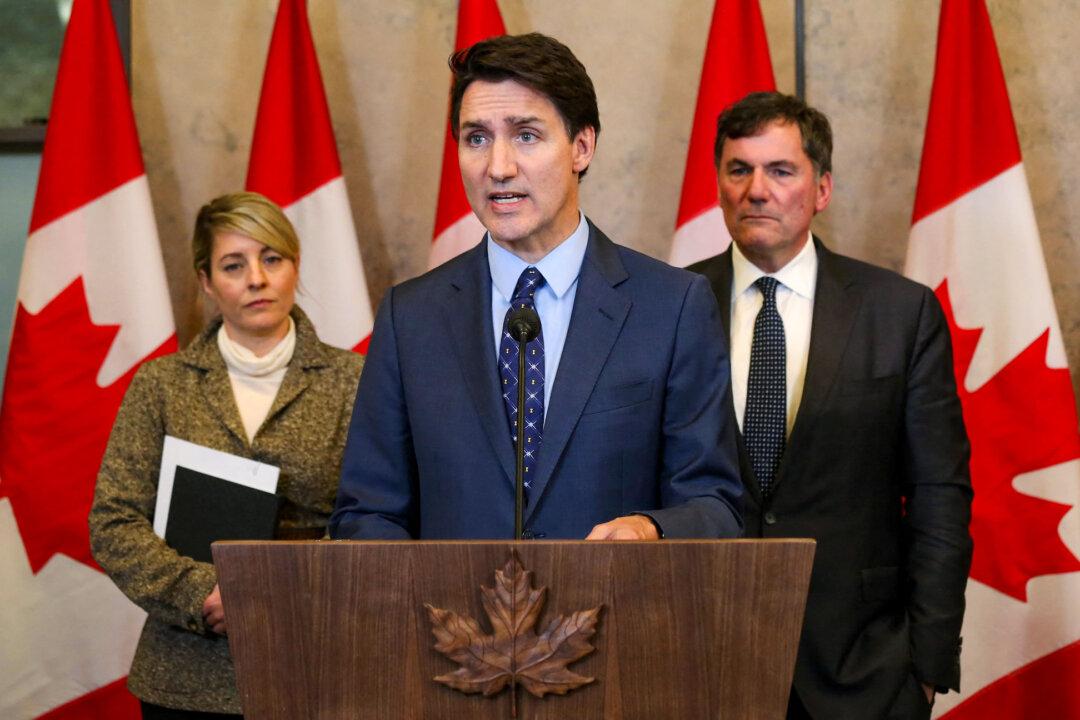Top Canadian officials are working to reassure the incoming Trump administration of their commitment to border security, with the country’s public safety minister pledging to further strengthen protocols to combat the flow of the deadly drug fentanyl into the United States, a key demand from President-elect Donald Trump, who threatened 25 percent tariffs on Canadian goods unless Ottawa gets tougher on border security.
In response to a warning from Trump, the chairs of the Canada-U.S. relations cabinet committee, Deputy Prime Minister Chrystia Freeland and Public Safety Minister Dominic LeBlanc, said in a statement issued Monday night that Canada “places the highest priority on border security and the integrity of our shared border.”





